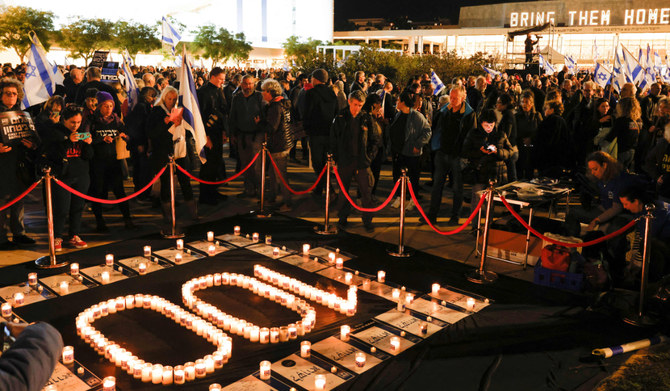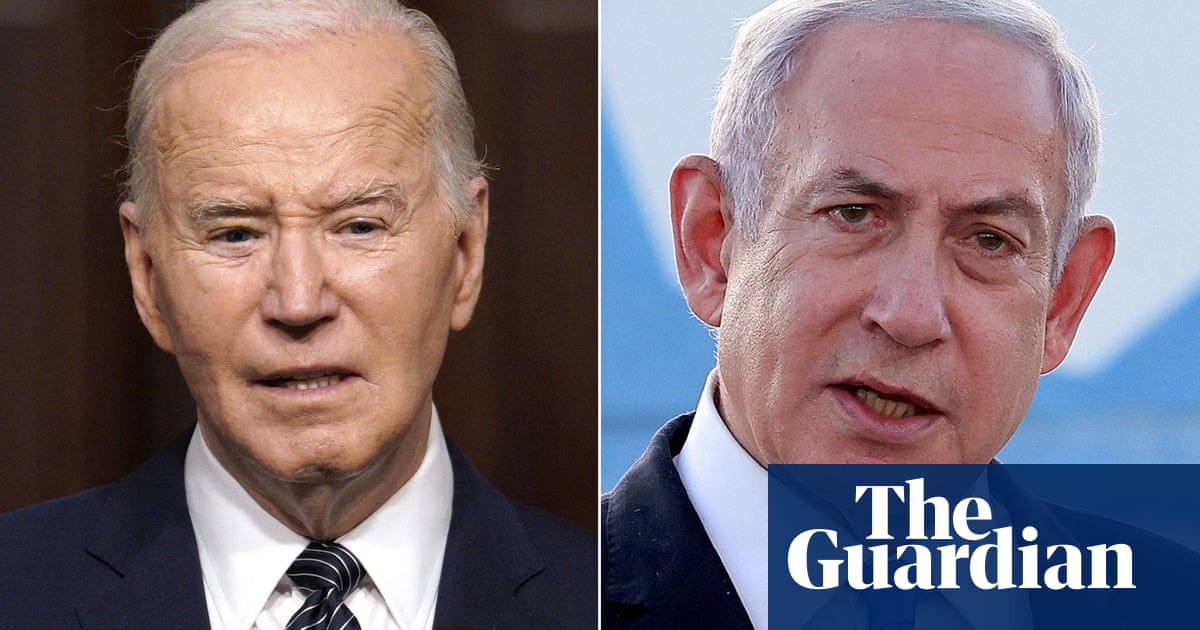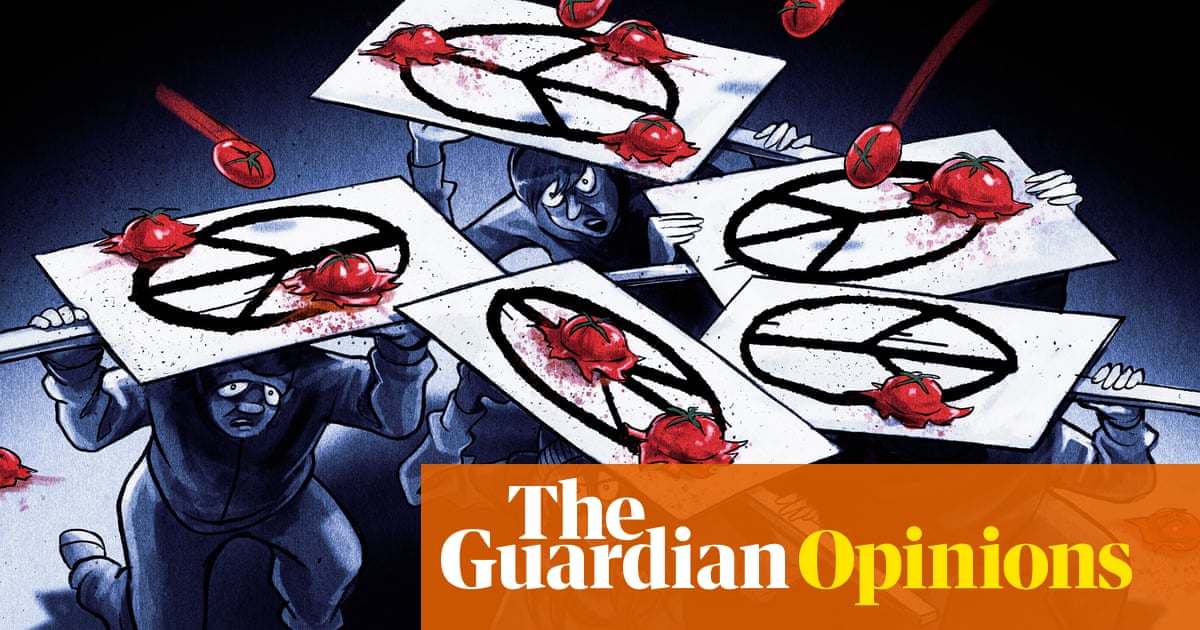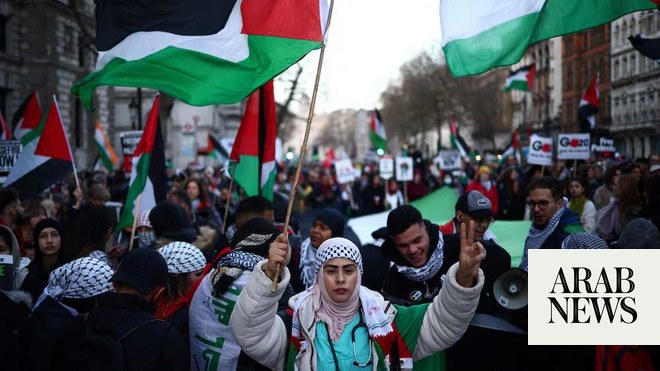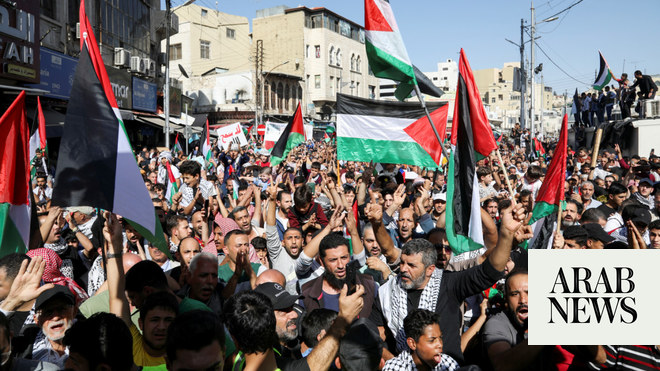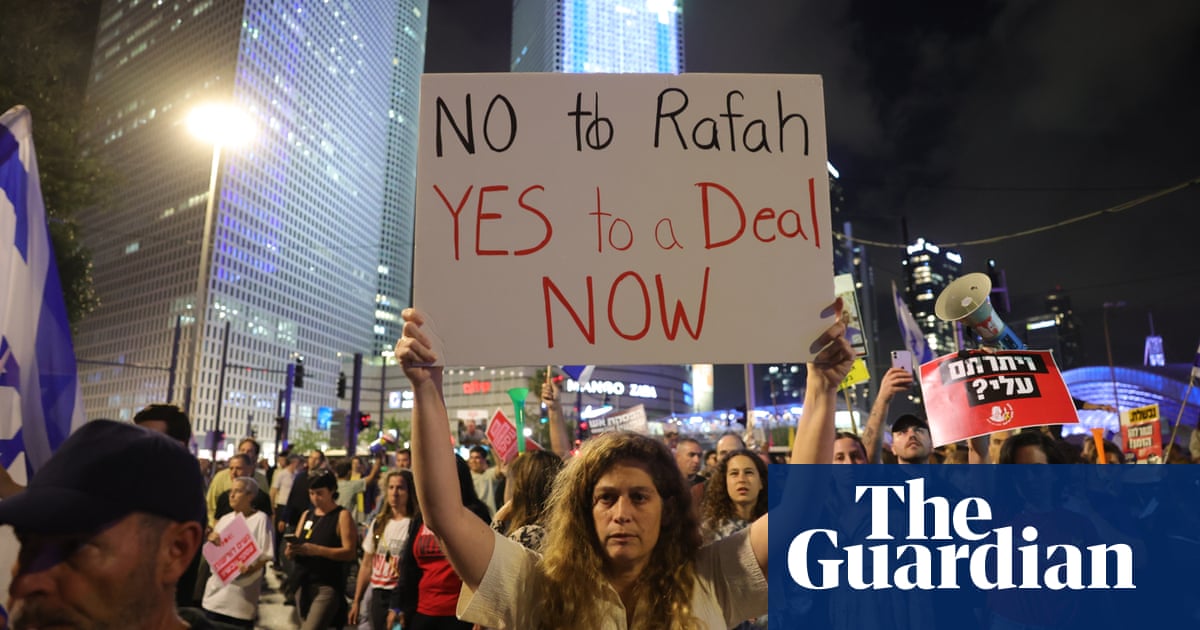
Thousands of Israelis around the country have joined rallies calling for the government of Benjamin Netanyahu to agree to the terms of a ceasefire deal that Hamas accepted on Monday.
Protesters gathered near the defence headquarters in Tel Aviv, while in Jerusalem at least 100 protesters marched towards Netanyahu’s residence with a banner saying: “The blood is on your hands.”
Demonstrations took place elsewhere, amid concerns that the Israeli military’s new offensive targeting the southern Gaza city of Rafah and the so-called Philadelphi corridor, which runs along the border with Egypt, could jeopardise the lives of surviving hostages.
There were smaller protests in the cities of Haifa, Beersheba and Raanana.
The protests came as splits in Netanyahu’s war cabinet appeared to be widening and the prime minister sought to hold his fractious governing coalition together.
The largest demonstrations took place on the Ayalon highway in central Tel Aviv, a frequent focus of protest, where police twice cleared people who were banging drums, carrying signs and shouting slogans. “Bibi is abandoning the hostages,” some of the demonstrators shouted.
Among those who gathered outside Netanyahu’s house in Jerusalem was Mai Albini Peri, the grandson of Haim Peri, a hostage in Gaza. Peri held a sign saying: “Rafah, not at the expense of my grandfather.”
The Hamas statement that it was prepared to accept a ceasefire, delivered by its senior politburo official Ismail Haniyeh hours after the Israel Defense Forces had ordered tens of thousands of Palestinians to leave eastern Rafah, appeared to catch Israeli officials – not least Netanyahu – by surprise.
Hamas announced it had accepted an Egyptian-Qatari ceasefire proposal, but Israel said the deal did not meet its “core demands” and that it was pushing ahead with an assault on Rafah.
The high-stakes diplomatic moves and military brinkmanship left a glimmer of hope alive – if only barely – for an accord that could bring at least a pause in the seven-month war that has devastated the Gaza Strip.
An Israeli incursion overnight appeared to be short of the fully-fledged offensive into Rafah that Israel has planned, and it was not immediately known if it would be expanded. Joe Biden on Monday urgently warned Netanyahu against launching a ground offensive, raising pressure for a ceasefire.
Israel said it would continue negotiations, even as its military carried out strikes on Rafah.
The news that Hamas had accepted a deal was greeted with enthusiasm by groups in Israel representing hostages held in Gaza.
The Hostages and Missing Families Forum, an umbrella group that represents a number of relatives of captives, said in a statement that the announcement from Hamas must lead to “the return of the 132 hostages held captive by Hamas for the past seven months”.
It said: “Now is the time for all that are involved to fulfil their commitment and turn this opportunity into a deal for the return of all the hostages.”
Israel estimates that 128 of the 250 hostages abducted by militants on 7 October remain in Gaza, including 35 who the military says are dead.
In Tel Aviv, Einav Zangauker, whose son Matan Zangauker is still held in Gaza, told a crowd on Monday night that it was “time to accept the deal”.
With a megaphone, Zangauker stood on the roof of a car and spoke in front of a large crowd of protesters. “We’re not going to let you continue to abandon the children,” she said.
In a post on X, the Israeli opposition leader, Yair Lapid, said the government was not serious about freeing the hostages. “A government that wants to return the abductees should be convening an urgent discussion and sending [negotiating] teams to Cairo, not hysterically issuing three different briefings from different parties and crushing the hearts of the families. A national disgrace. There is no limit,” he wrote.





